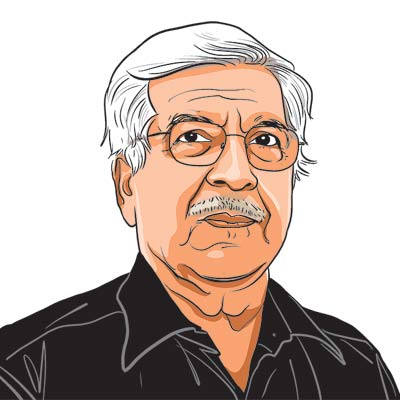Opinion At home and abroad
Yoginder k. Alagh | Charawak<br> There are three reasons why there can be nuanced differences in what you say at home and abroad.
Is the debate the same at home and abroad? A senior admonished me for criticizing the powers that be and for being in a Bush dabba at the G20 in a piece in the Express,but saying in a Group paper that India was pursuing its interests at home in concentric circles abroad,using a Rajiv Gandhi phrase.
I remonstrated,since the first one was for a debate at home and the second was an invited piece in a volume on the G20 at ten brought out by the G8 Institute on what India’s larger stand should be. This was placed as a Resource Document by the organizers of the London Summit on their official web site.
I was told that these were only excuses.
There are three reasons why there can be nuanced differences in what you say at home and abroad.
The first is that issues and interest are different. At home,we are all following the same objectives.There can be sharp differences in strategies. Fights between close ones can be bitter because real interests and issues are involved,and change is possible. The global plane is more complex. For this purpose,the Diaspora is ‘home’,for values are shared in terms of historical memories.
Abroad,you have to explain and cajole. Inspite of the talk of the global village,the language of the other is still barely understood,and the clash of interests can be in basic objectives — at the first level,as it were. So,in the global piece,it was important to explain the anti-colonial agenda after independence and Indira Gandhi at Stockholm (Poverty is polluting) and Budapest (Population policy is development),and that the Goa military option was delayed because India fought for peaceful decolonization. But Rajiv brought in the new agenda,technology,decentralization and high growth. And India redefined its global imagery. All this is old hat at home but not abroad.
The second reason is peculiar to China and India. Both think they are the centre of the world. When you are at home,it doesn’t matter — because you are the centre. But when you go abroad,the shock is devastating. Now,you can say that Charawaks believe in facts and the globe is a reality. But all Indian philosophies — and the Charawaks are not an exception — are built in the construct that the world,indeed the universe,is structured around India. Homo Hierarchus,as the great French anthropologist Dumont put it. You are for or against,but it sets the debate.
Finally,I suspect that inspite of all the talk of globalization we are patriotic,and I will bare my heart out to you in a way I might not elsewhere.
PS : There is a joker in the pack. After I finished this blog,I discovered to my consternation that the Brits who run the London official web site on the G20 meeting have also put my Bush dabba piece on the web. Not easy to upstage history. Maybe my senior has a point.


